
Latest Allergies News and Research
PrEP drug levels found to lower among pregnant African adolescent girls and young women
Among African adolescent girls and young women who took HIV pre-exposure prophylaxis (PrEP) daily, levels of the PrEP drug tenofovir were more than 30% lower in those who were pregnant than in those who had recently given birth.
Children with a rare food allergy have higher chance of being diagnosed with other allergies
Researchers at Children's Hospital of Philadelphia have found that children with a rare food allergy known as food protein-induced enterocolitis syndrome, or FPIES, have a significantly higher chance of being diagnosed with other allergic conditions, including eczema, traditional food allergy and asthma.
Respiratory antivirals and risk to breastfeeding women
Little data is available about the ability of antiviral drugs used to treat COVID-19, coronavirus, to enter breastmilk, let alone the potential adverse effects on breastfeeding infants.
Cesarean delivery has little impact on development of childhood allergic diseases
A cesarean birth had little impact on whether a child would go onto develop allergies, a new study led by the Murdoch Children's Research Institute has shown.
Maternal psychological distress during pregnancy influences child's gut immunity
A woman's mental health during pregnancy has a direct influence on the development of her child's immune system, according to a new study from pediatric researchers at the University of Alberta.
Length of pregnancy related to chemical DNA changes in newborns
Researchers from Karolinska Institutet in Sweden have together with an international team mapped the relationship between length of pregnancy and chemical DNA changes in more than 6,000 newborn babies.
In an exchange about coronavirus, homeland security chief gets flu mortality rate wrong
During a Senate appropriations Feb. 25 subcommittee hearing, Chad Wolf, the acting secretary of Homeland Security, said the U.S. flu mortality rate was about the same as the current estimated global mortality rate of the coronavirus outbreak.
People with drug-induced liver damage could continue taking life-saving medications
When you ingest a drug--whether over-the-counter Tylenol or medication prescribed by a doctor--your liver is your body's first responder.
Coronavirus outbreak is a stark reminder of ongoing challenge of emerging infectious pathogens
The emergence and rapid increase in cases of coronavirus disease 2019 (COVID-19), a respiratory illness caused by a novel coronavirus, pose complex challenges to the global public health, research and medical communities, write federal scientists from NIH's National Institute of Allergy and Infectious Diseases and from the Centers for Disease Control and Prevention.
Study finds significant increase in skin allergy to 'bee glue'
Skin allergy to an ingredient found in many natural skin products has more than doubled since 2007, according to a study in the British Journal of Dermatology.
New immunotherapeutic strategy shows promise to fight off infectious biofilms
The same way baking soda breaks down grease and grime, making surfaces easier to clean, researchers at the Lewis Katz School of Medicine at Temple University now show that a new therapeutic molecule can break apart communities of harmful bacteria, opening the way for bacteria-killing antibiotics to more effectively clear out infections.
Bifunctional nanobodies with antitoxin potencies could protect against botulinum neurotoxins
New study reveals potential for developing novel antibody-based antitoxins against botulinum neurotoxins (BoNTs), including the most commonly used, yet most toxic one, Botox.
Clinical trial to evaluate safety, efficacy of remdesivir in adults with COVID-19 begins
A randomized, controlled clinical trial to evaluate the safety and efficacy of the investigational antiviral remdesivir in hospitalized adults diagnosed with coronavirus disease 2019 (COVID-19) has begun at the University of Nebraska Medical Center in Omaha.
Transferring knowledge, not anxiety, can help food-allergic children cope with their fears
A new article in Annals of Allergy, Asthma and Immunology, the scientific journal of the American College of Allergy, Asthma and Immunology discusses the difficulties faced by parents of children with food allergies in not transferring their own anxieties to their children.
Scientific breakthrough provides insights into basic mechanisms of allergic reactions
An international research team has been able to describe the overall structure of the antibody type IgE, which is the key molecule in allergic diseases.
Integrated care conferences reduce length of hospital stay for COPD patients
Hospitals can dramatically reduce the length of a patient's stay (by up to 67%) when their provider teams hold integrated care conferences, a daily meeting for providers to share information at once.
New tool incorporates PET and CT scans to measure effectiveness of key anti-TB medicine
Experts believe that tuberculosis, or TB, has been a scourge for humans for some 15,000 years, with the first medical documentation of the disease coming out of India around 1000 B.C.E.
Daily moisturizer does not prevent eczema according to new research
Eczema or atopic dermatitis is a skin condition that causes the skin to become itchy, red, and dry due to inflammation. Most commonly found in babies and children, previous recommendations say that daily moisturizer use is crucial in preventing eczema bouts.
Brisbane’s grass pollen season the worst on record, says QUT professor
Brisbane’s grass pollen levels over the past two months have been up to four times higher than levels recorded anywhere in Australia since comparative records have been kept, QUT’s Professor Janet Davies told a federal parliamentary inquiry this week.
Vaccine for COVID-19 coronavirus could soon be a reality
A team of researchers from the University of Texas at Austin and the National Institutes of Health have managed to make significant progress in the development of a vaccine against the fast-spreading and virulent COVID-19/Novel coronavirus that started in Wuhan, Hubei province of China in December 2019 and is still infecting thousands.
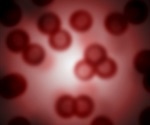
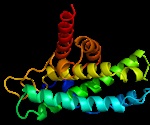




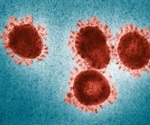

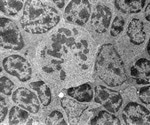
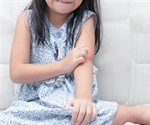
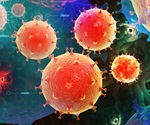
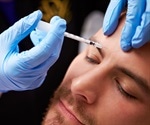


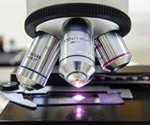

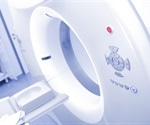
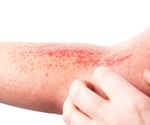
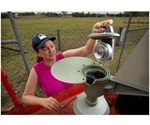
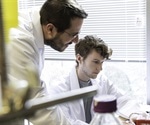
































No hay comentarios:
Publicar un comentario